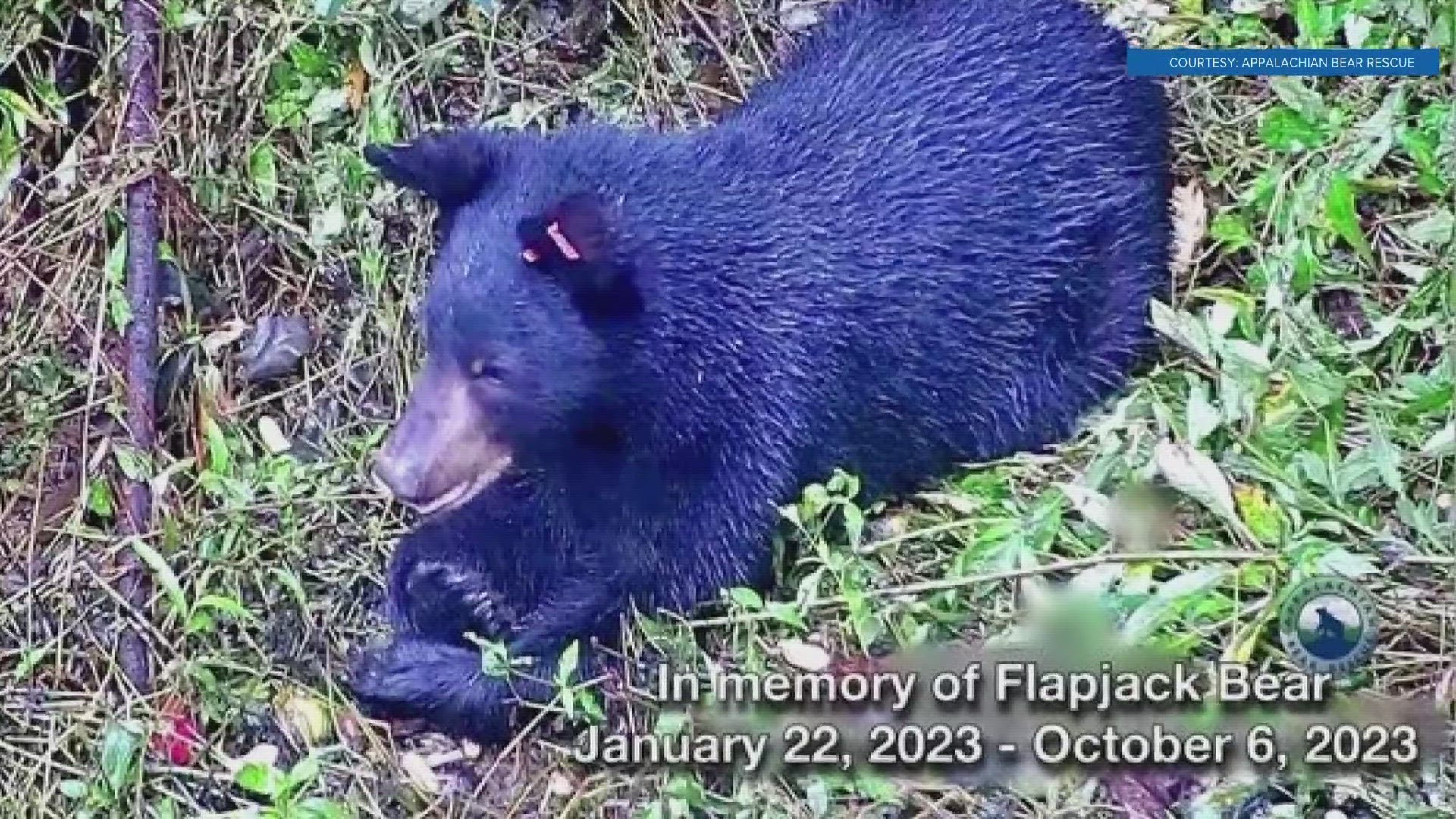TOWNSEND, Tenn. — Appalachian Bear Rescue said Friday that veterinarians from the University of Tennessee College of Veterinary Medicine are working to identify what kind of illness resulted in the recent deaths of two bear cubs. On Friday, they said veterinarians identified a strain of Streptococcus bacteria which could be the cause.
"That's our kind of working diagnosis right now. The good news is they've been put on an antibiotic right from the get-go, which is appropriate for this bacteria. And so they should be getting good antimicrobial treatment. And they seem to be clinically improving each day, even in tiny steps," said one of the veterinarians.
The veterinarians said they also tested for coronavirus, and have not yet received results from those tests. However, they said tests for the distemper virus have returned negative. One of the cubs who died, named Flapjack, also did not have evidence of viral pneumonia. So, veterinarians said the cause was likely bacterial.
They said they are still looking for the source of that bacteria.
"The bacteria that is growing is not a bacteria that's associated with anything that's found in water. And based on what the pathologists have told us, there's no evidence of any, you know, fungal organisms or something else that can be found in water," said one of the veterinarians. "So we think it may have been of poultry origin. But that is sort of speculative at this point, just given that it's a specific strep that tends to be in poultry. And so, we don't know exactly where that came from. That is part of what we're still actively investigating at this point."
ABR said they are watching the bears constantly through cameras set up at the enclosures. They also said bears have been quarantined and experts are watching their breathing, watching for anything that could indicate sickness in the bears.
They also said the strain of bacteria is not the same kind of strep bacteria usually found in humans. However, ABR said its workers and the veterinarians are taking steps to make sure they stay clean and safe, such as using a specific type of shoes when going into enclosures to make sure bacteria doesn't spread outside of enclosures.
ABR also said they haven't added any additional bears to the group impacted by the bacteria. They said a doctor is researching whether one of the recent additions could have gotten sick after their mother was killed after eating domestic chickens. They said they are working with the state health department, the state agricultural veterinarian and the TWRA's wildlife veterinarian on testing.
"We don't know all the answers yet. But at least we're able, what we do know is that we have the right set of antibiotics, it feels a lot better around here to at least know what we're up against," said ABR.

